INTERVIEW TRANSCRIPT
Charles Pakana (Victorian Aboriginal News): In February this year, 144 health, justice, human rights, environment, youth, and housing sector organisations joined in an alliance to support a Yes vote in the referendum to recognize a First Nations Voice to Parliament, dubbed the Allies for Uluru Coalition. The alliance intends to build a groundswell of public support for the Yes vote. Joining me on the program to discuss this is Ian Wishart, CEO of the Fred Hollows Foundation, one of those 144 organisations. Ian, welcome to the program.
Ian Wishart (CEO, Fred Hollows Foundation): Thank you. Good to be here.
Charles: Ian, what started this alliance? Whose idea was it, and when did it all start?
Ian: The Alliance began as an idea with a couple of agencies, certainly the Fred Hollows Foundation and Oxfam, began gathering about two years ago when it was clear that there was a push towards a referendum. We had a couple of meetings last year where we thought, “What could we do to support an ally with Aboriginal and Torres Strait Islander people and their leaders?” The idea was to form these allies for Uluru Coalition of the social sector. It’s interesting, when, I think, the Yes campaign launched in Adelaide, they suggested that the community organise into sector groups, and it’s by chance, we’d already begun trying to form the social sector, some people would call that the charity sector, into a coalition to support the Yes campaign. That’s the genesis of it.
Charles: 144 organisations, quite a sizable achievement. How was that actually done?
Ian: We put the word out, mostly to CEOs, and said, “We stand as charities and social organisations. We stand for social justice. We recognise disadvantage. We recognize when people need to have a voice.” We put to them that we all have a history of trying to help people. That here was Aboriginal and Torres Strait Islander people putting in front of the Australian people, not the politicians, putting in front of the Australian people a request. We recognized it as the only form of constitutional change that has that wide and broad support, so we thought it was something we should support. We also saw it as fair and practical, something that would have a fair chance of getting up and a once in a generation opportunity to set a new path in this country, so we were keen to get behind it. Fortunately, that argument resonated with so many different leaders.
Charles: Without naming names, because I can’t believe that there would’ve been a hundred percent support for this call to action that you put out there to the CEOs, was there any pushback, and what were some of the reasons given?
Ian: The only pushback we had is that there are some unique organisations which, constitutionally, are not able to join such campaigns because of their unique independence stance, so that’s really the only pushback I received. Of course, when you talk to individual Aboriginal and Torres Strait Islander people, not everyone agrees with the referendum, but I guess our view on that is that, in any community, not everyone agrees with something, but this one, there was a comprehensive process and has this wide support from the leaders and community, so we felt comfortable to get behind it. The other thing is, if this is really going ahead, which it seems to be, the worst possible thing for it would be to not succeed, and it will need a majority of the Australian people and a majority of states to get across the line. We felt that it’s incumbent on us to sort of build a groundswell support because it will need widespread support.
Charles: There will, though, be members within the community who are either clients of these organisations or allied with those organisations in one way or the other who are going to wholeheartedly disagree with the stance of the coalition. Are there strategies in place to deal with that to help your member organisations manage it?
Ian: We’ve been setting down some principles that the coalition members agree to, and one is to not be disrespectful at all if people disagree. Simply to state in the positive why we think it should be supported, but accept that people will have different views. Within our organisations, we also are being careful to understand that not every Aboriginal and Torres Strait Islander employee may be pro the Yes campaign or pro the alluring statement. We’re also making sure that employees don’t feel under duress, that they absolutely have to fall in line. It’s okay to have a different opinion.
Charles: How do you police that? Not that you really could police that, but how do you enforce that to those organisations? That they’re actually going to have staff members who will passionately disagree with the Yes vote? Because the No campaign, the liberals, and the nationals do come up with some very interesting arguments, no doubt about that. How can you guarantee, or your member organisations guarantee, that the wellbeing of those who disagree with the Yes vote is looked after within the organisations?
Ian: That’s a good point. We do a lot of work within our organisation to create what we call psychologically safe spaces. That is for people to be heard, even though they may have a contrary opinion on any range of issues, and this would be a particular one. Not to feel railroaded by things, but the organisation still needs to take a position on matters. That can be true about campaigns. It could be true about decisions that have to be made within the organisation. But nevertheless, people should be free to speak their mind and have those spaces where we can have dialogue. We also, of course, support people with external support. We also have a network of Aboriginal and Torres Strait Islander people within our organisation supporting each other as well.
Charles: This actually is a very important point for the Fred Hollows Foundation. Given the amazing work that Fred did, do you see it as almost a personal drive within your organisation? Part of its ethos, almost?
Ian: We certainly are very cognizant that Professor Fred Hollows himself was very allied with Aboriginal and Torres Strait Islander people. He was very involved in bringing to the attention of the then federal government, the gap in health circumstances and he was very involved with Aboriginal and Torres Strait Islander leaders who started the first Aboriginal Medical Service in Redfern. He always said that you cannot separate people’s health and, in our case, their eye health from the determining circumstances of their lives and that they need a voice and a say in the services that are provided to them and the overall politics of the country. This is not the perfect solution. That’s not going to answer everything, but I think it’s a really important building block in resetting the foundations of this country. We can’t undo the past, but we can certainly make a better future.
Charles: What about actions? In making that better future, how do you work towards? What actions are you looking to put into place to achieve that Yes vote?
Ian: 144 organisations. We all have supporters. I would say that our supporter bases combined run into the millions. We have, actually, at the Fred Hollows Foundation, for two years, been just gently sharing the message of the Uluru statement, that quiet but dignified ask to Australian people, and saying, “Look, this is what Aboriginal and Torres Strait Islander people are saying. Please listen, please hear it.” Urging people to inform themselves first. We’re not trying to browbeat them into supporting. We’re saying, “Here’s some resources. Take a look at it. Listen to it. Watch this video and see for yourself. Make up your mind.” That’s been our approach.
Charles: Will the alliance actually be developing its own resources or utilising those of the existing Yes campaigns?
Ian: We try to not do secondary things but to use existing resources. Obviously, we customise it to a Facebook post or a social media post. But by and large, we use the materials we can obtain.
Charles: Other organisations, is the alliance open to grow beyond the 144 or have you capped your membership?
Ian: No. Certainly not. We want to grow as wide as possible, and we want other sector groups to develop. We are pleased to see there is support coming out from some major companies, set from the sporting codes of being very supportive. Faith communities are coming out in support. This is all positive, and we certainly will want to grow ours. It’s not exclusively social sector or charity groups. We had some corporates join us, but that’s the space we operate in, so we want it to grow.
Charles: You’re a CEO, so I’m going to assume that you’re looking at things always from a strategic perspective. What are your thoughts of the alliance post-referendum vote, regardless of the outcome?
Ian: Gosh, you caught me out there. I guess we’ve always looked for the places where we can ally with Aboriginal and Torres Strait Islander people.
We’ve been one of the original supporters of the Close the Gap campaign. This campaign we see as pivotal. I’m very much hoping that this will be successful. We support the Uluru statement in whole, so if there’s further work that needs to be done on truth telling and treaty, we’d be open to supporting that because we support the Uluru statement in whole.
Charles: I can see in that case that we may be talking again in the months to come. Ian Wishart, CEO of the Fred Hollows Foundation, thank you very much indeed for your time today.
Ian: Thank you.


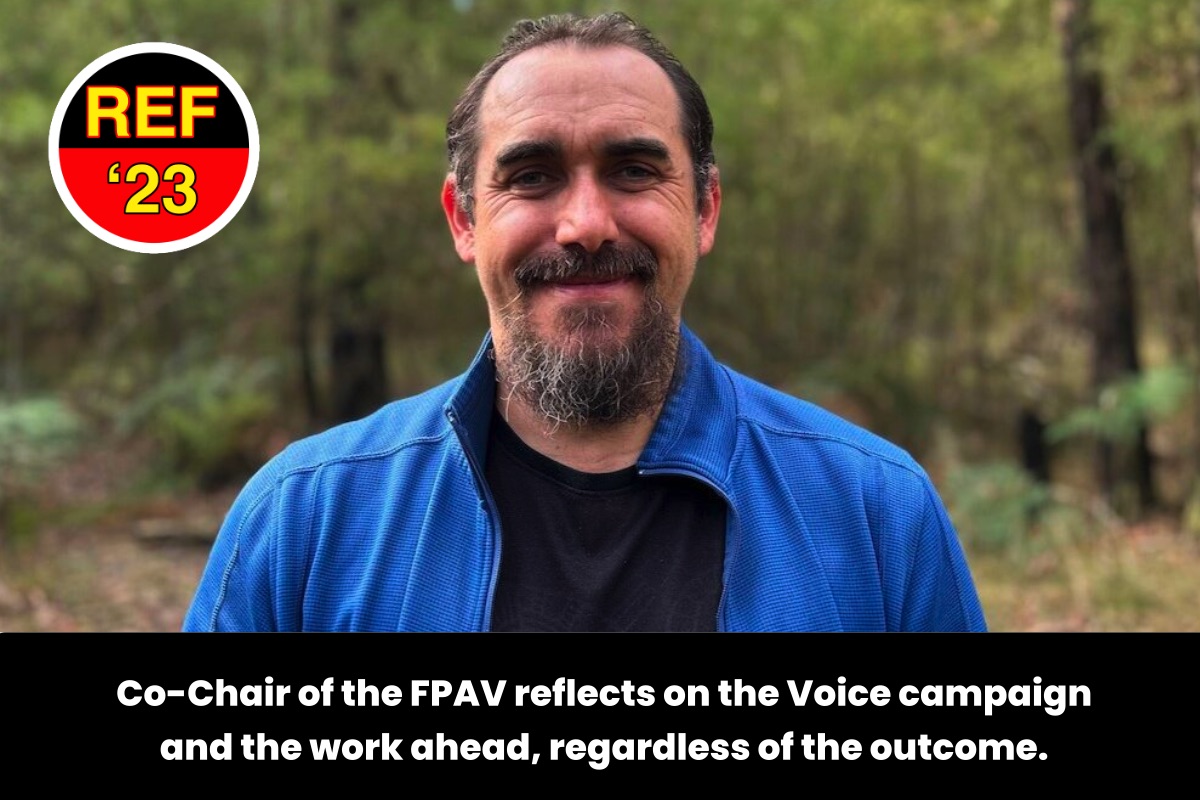
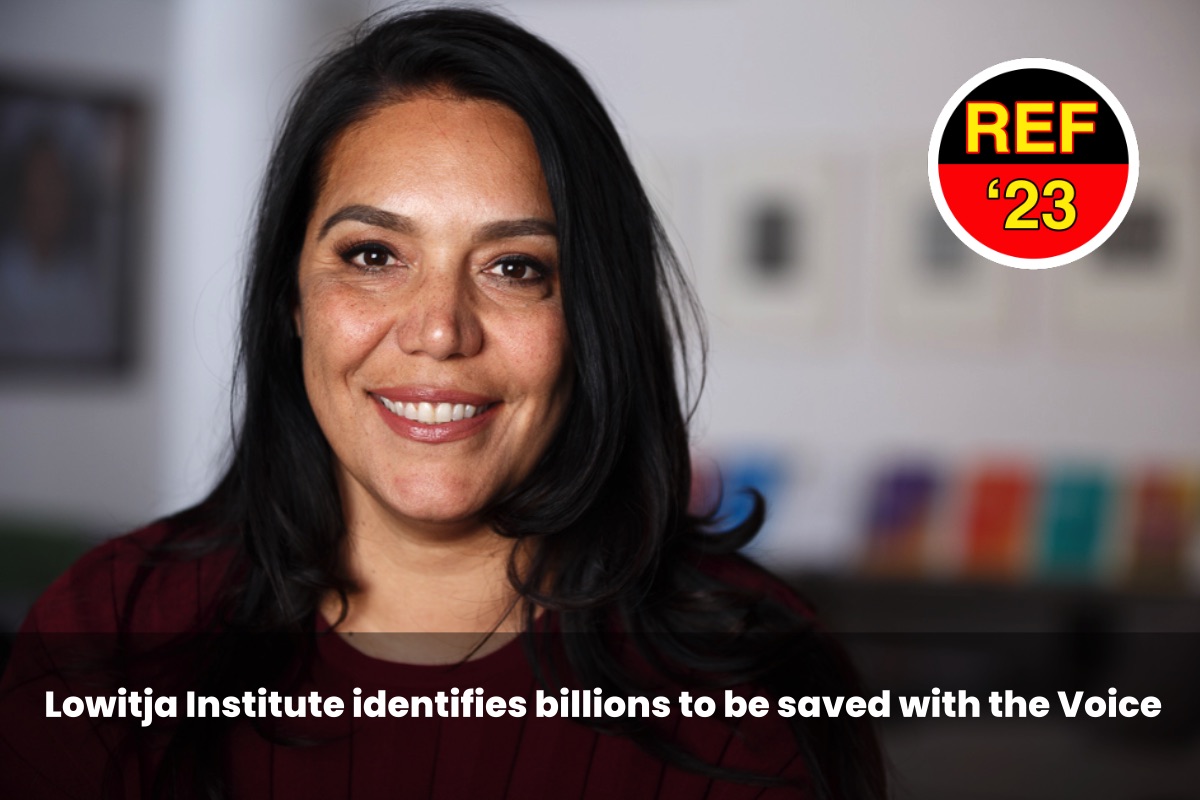
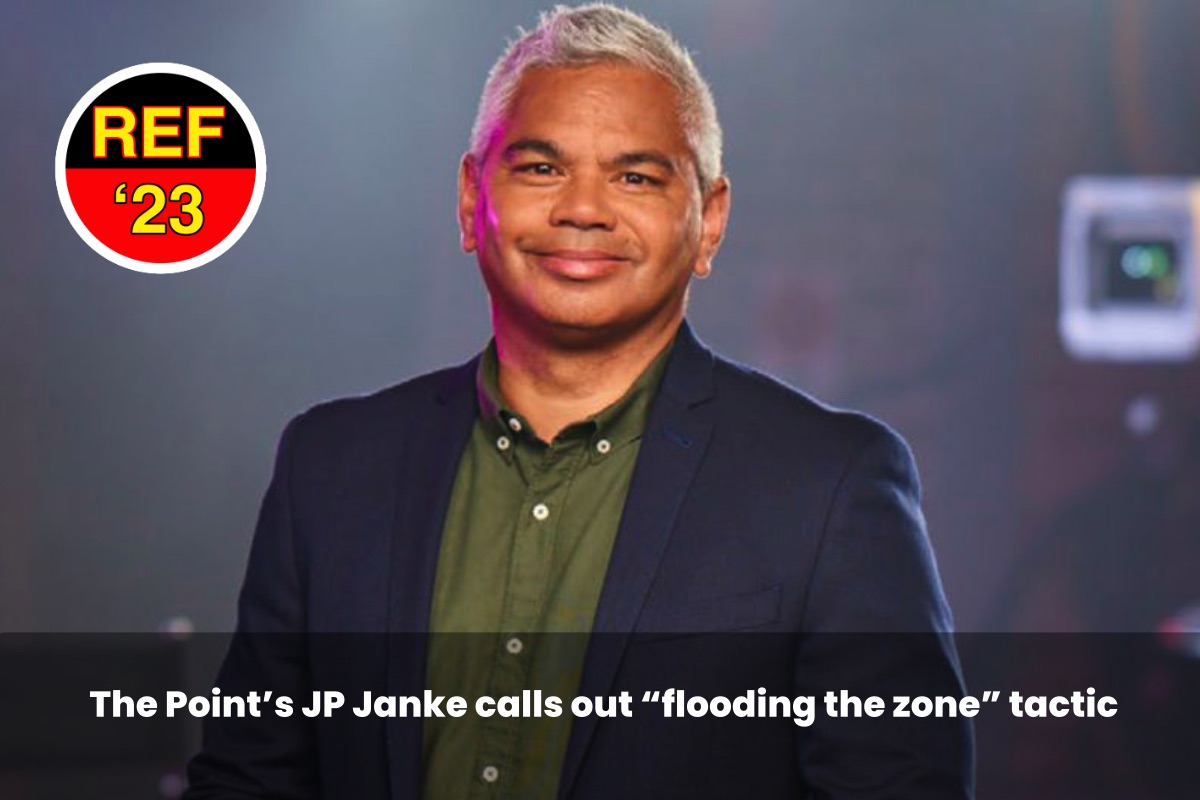
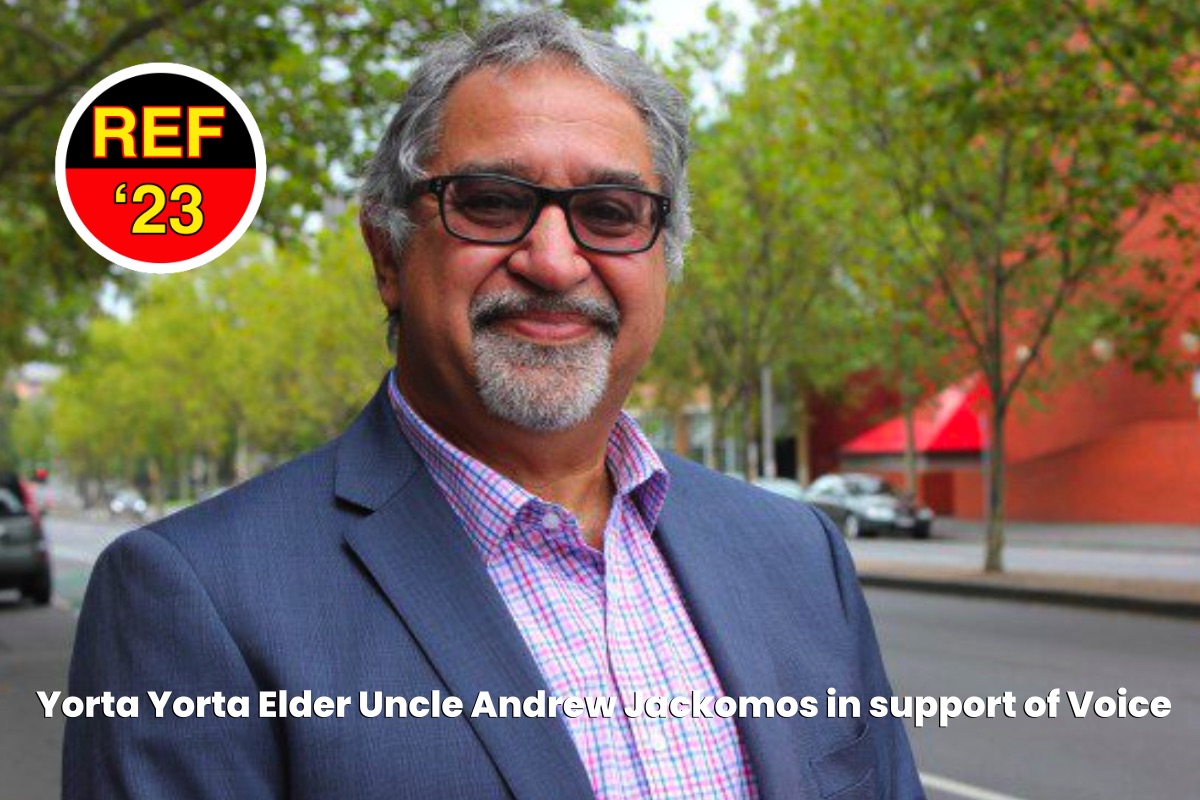
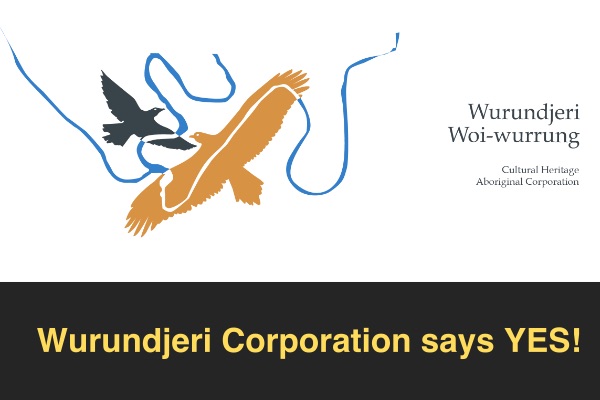

0 Comments